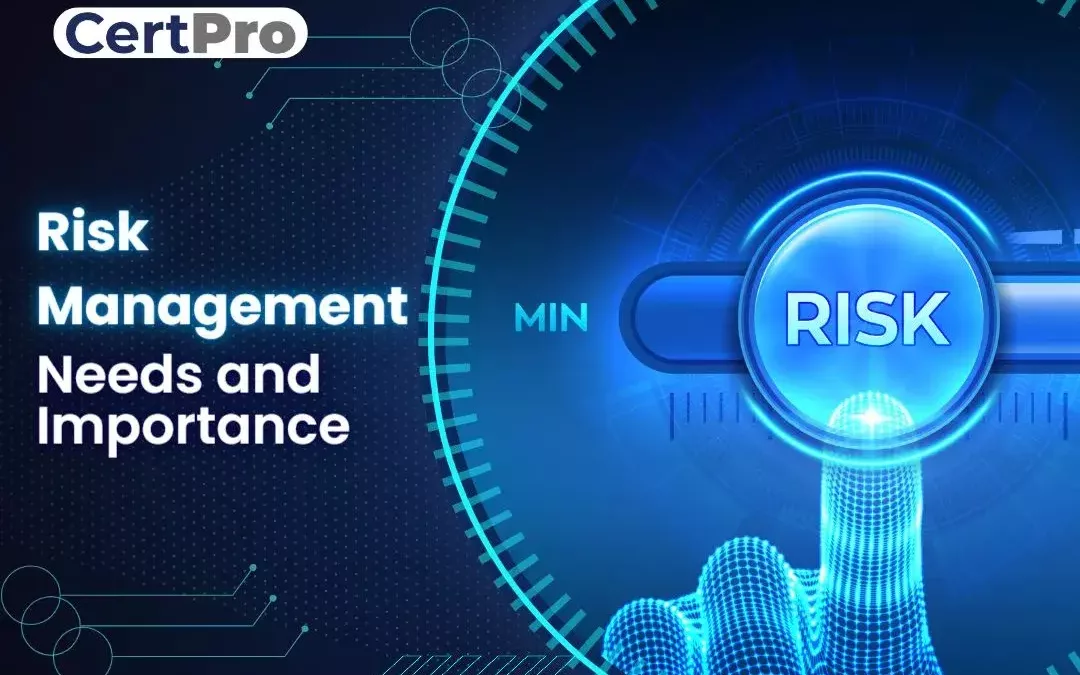Exploring the Sustained Benefits and Importance of Risk Management for New Businesses
Exploring the Sustained Benefits and Importance of Risk Management for New Businesses
Blog Article
The Vital Importance of Risk Management in Getting Organizational Objectives
In the swiftly advancing service landscape, the ability to browse unpredictability has become a crucial. This is where Risk Management actions in, giving a structured technique to recognizing, assessing, and mitigating prospective roadblocks to advance. It's even more than simply a safety measure - it's a calculated device, cultivating resilience and development. As we discover the critical role of Risk Management in accomplishing business goals, one can not aid yet wonder: exactly how does this equate right into real-world success?
Recognizing the Principle of Risk Management in Company

The Indispensable Role of Risk Management in Strategic Preparation
Integrating Risk Management into tactical preparation acts as a guard for organizations, anchoring their lasting strategies with a solid foundation of readiness and resilience. Risk Management provides a structure for expecting uncertainties and devising appropriate reactions, ensuring the company's survival and success even in the face of hardship. By including Risk Management right into critical planning, companies can change these uncertainties into opportunities for growth and development.

Techniques for Identifying, Assessing, and Focusing On Dangers
Browsing the facility landscape of dangers calls for the application of details techniques for their identification, prioritization, and analysis. The procedure starts with Risk identification, using devices such as SWOT analysis, which assists in determining prospective threats and possibilities. Next off, Risk evaluation is conducted to identify the potential impact and likelihood of each Risk. Tools such as Risk matrices and impact-probability graphes are used for this. Dangers are focused on based on their prospective influence and chance, allowing organizations to focus their sources on critical dangers. This methodical method ensures a thorough understanding of the Risk landscape, enabling organizations to make enlightened decisions and efficiently manage threats to accomplish their goals - importance of risk management.
Securing Business Workflow Through Effective Risk Management
In the service landscape fraught with unpredictabilities, efficient Risk Management plays a critical role in safeguarding business operations. It offers as a protective guard, mitigating the adverse results of prospective dangers and guaranteeing the smooth functioning of all processes. By identifying and examining prospective risks, Risk Management allows organizations to develop robust backup strategies. This preventive approach help in maintaining operational stability, even when confronted hop over to these guys with unexpected situations. Fundamentally, Risk Management is the lifeline that keeps the business operations afloat among stormy waters. It ensures not only the survival however the sustainable growth of a company, making it an important device in attaining business purposes. For this reason, companies should buy detailed Risk Management techniques to guard their operations.

Converting Potential Risks to Opportunities: The Power of Risk Management
While prospective dangers could at first look like obstacles to organizational success, efficient Risk Management can transform them into chances. A positive strategy to run the risk of Management includes determining, examining, and focusing on threats to create techniques that transform them right into possible benefits. This process demands the development of a risk-aware culture within the organization, urging people to check out dangers as potential stimulants Continue for change and growth, as opposed to mere threats. importance of risk management. Through this lens, possible dangers become opportunities to introduce, enhance processes, and enhance durability. Therefore, by leveraging the power of Risk Management, companies can not just guard their procedures but also stimulate development and attain their objectives in an uncertain company setting.
Instance Researches: Success Stories of Risk Management Driving Business Objectives
Effective application of Risk Management methods has generated impressive results in different businesses, emphasizing the benefits of this strategy. International firms like Microsoft and Google, for instance, have leveraged Risk Management to decrease hazards and manipulate opportunities, driving their company purposes forward. These examples highlight how successful Risk Management can not just steer companies clear of potential challenges yet also direct them in the direction of their calculated objectives.
Conclusion
In verdict, Risk Management is fundamentally crucial read this in accomplishing organizational goals. By incorporating Risk Management into tactical preparation, companies can better navigate uncertainties, secure operations, and capitalise on opportunities, therefore aligning with long-term purposes.
At its core, Risk Management is the process of identifying, assessing, and dealing with possible threats that can negatively influence a company's procedures or goals. Next, Risk analysis is carried out to identify the prospective impact and chance of each Risk. Dangers are focused on based on their possible effect and chance, allowing companies to concentrate their resources on high-priority dangers. By determining and evaluating possible dangers, Risk Management enables organizations to develop robust backup plans. An aggressive method to take the chance of Management entails identifying, analyzing, and prioritizing threats to develop methods that turn them into possible benefits.
Report this page